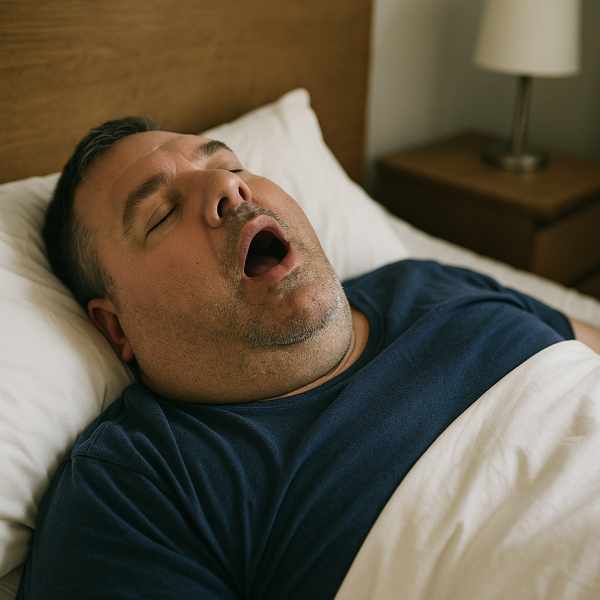
Many people with sleep apnea experience snoring, daytime fatigue, and health complications.
While not always a complete cure, weight loss often lowers the impact of sleep apnea significantly.
What Is Sleep Apnea?
The most common form is obstructive sleep apnea (OSA), caused by blocked airways.
Common symptoms include:
- Often reported by sleep partners
- Choking or gasping during sleep
- Excessive daytime tiredness
- Signs of disrupted oxygen flow
The Link Between Weight and Sleep Apnea
Fat deposits in the throat may narrow the airway, making it more likely to collapse.
Key risk factors include:
- More weight increases OSA risk
- Fat around the neck and jawline
- Poor muscle tone in the throat
Does Losing Weight Help OSA?
In many cases, losing weight can dramatically reduce or eliminate sleep apnea symptoms.
Possible benefits of weight loss:
- Less airway obstruction
- Better oxygen flow
- More natural treatment options
- Feel more rested and alert
However, weight loss may not cure visit sleep apnea in all cases — especially if anatomical issues or severe OSA are present.
How Much Weight Loss Is Needed?
Even modest weight loss can have a big impact.
Tips:
- Start with small, achievable goals
- Combine diet and exercise
- Track your sleep changes
Lifestyle Changes That Help
Effective strategies:
- Eat a balanced, whole-food diet
- Exercise regularly (cardio + strength)
- Sleep on your side
- These relax throat muscles and worsen apnea
Working with a nutritionist or sleep specialist can provide more personalized support.
What to Do if Symptoms Persist
If symptoms continue, talk to your doctor about other options such as:
- Keeps airways open at night
- Custom-fitted mouthpieces to reposition jaw and tongue
- Surgery in severe cases
Conclusion
For those whose apnea is linked to weight, shedding pounds is often a powerful, non-invasive solution.
Still, sleep apnea is a medical condition that may require combined treatments.